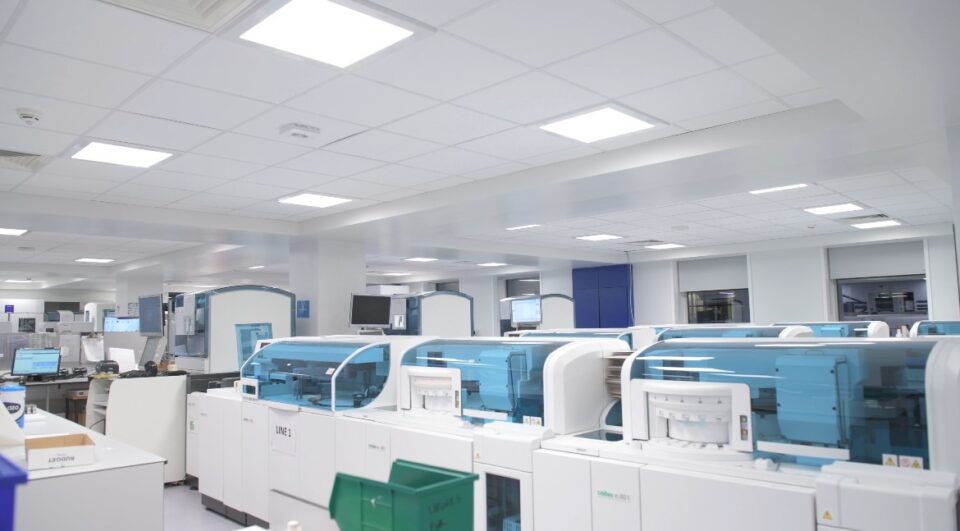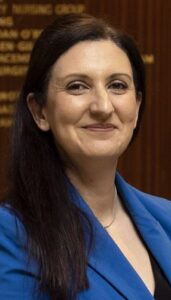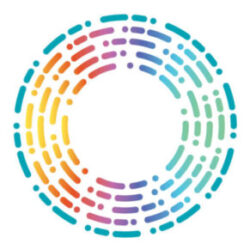
The laboratory in the Beaumont RCSI Cancer Centre is made up of many different departments, all of which at some point have a part to play in helping Cancer Patients through their journey from diagnosis, to treatment.

Rozanna Hardie, Business Manager in the Laboratory gives us an insight into how.
“Laboratories are made up of many different departments and look after blood, fluid and tissue samples. Here are some examples of where we are involved in with our Cancer patients.
Phlebotomy: All Cancer patients will meet our phlebotomy staff on a regular basis. Skilled phlebotomists minimise any discomfort to patients.
Sample Receipt: Medical Lab Aides perform all the pre-analytical preparation of blood, fluid and tissue samples so they are ready for analysis by our scientists.
Chemical Pathology: Here we can provide levels of certain tumour markers in a patient’s blood, we also provide results on various organ functions that indicate any side effects from treatment e.g. liver and renal function tests. Specialist testing can detect underlying cancers
Haematology: Clinicians are provided with details on a range of blood cells including platelets and haemoglobin which will indicate if a cancer patient requires a blood transfusion. Scientists here also perform specialised testing to diagnose blood cancers.
Blood transfusion: Scientists here ensure that the correct blood and blood products are dispensed for much need blood transfusions.
Immunology: Specialist antibody testing is provided by this department that can support treatment plans. Clinical Immunology are also responsible for providing Immunogloblin therapy.
Microbiology: Infection is always a concern for cancer patients as many treatments leave them with weak immune systems. Microbiology staff play a vital role in checking patient samples for infection and where they find it making recommendations on treatments that will work on these infections.
Histopathology: This is where tissue samples are analysed. These are sent to diagnose a cancer or to find out the extent of a cancer after surgery and our Histopathologists attend all multi-disciplinary meetings with a patient’s entire team of clinicians.
Molecular pathology: Next generation sequencing is one of the more advanced techniques and is used to look at the DNA of the tumour sample. This is an essential part of supporting targeted treatment. This laboratory also provides a national service for neurological tumour molecular testing.
Patients are at the centre of everything we do, so ensuring excellent quality of procedures as well as making sure the highest standard of accurate results are available in a timely manner are important to all the staff here. Laboratory services see ever increasing numbers of samples arriving for analysis every year. Last year alone we provided clinical teams with over 20 million test results. We couldn’t do this without our team of Consultants, Scientists, Lab Aides and Administrators and support from the wider hospital. We are a fully accredited lab and continue to strive for excellence for all our patients (This means we meet all the safety and quality conditions that are required for a centre of excellence)”
Categories
Latest News
-
May 8, 2024
-
March 26, 2024
-
February 19, 2024
-
January 30, 2024
-
January 24, 2024
-
January 10, 2024
-
January 22, 2024
-
January 31, 2024
-
November 27, 2023
-
October 3, 2023

